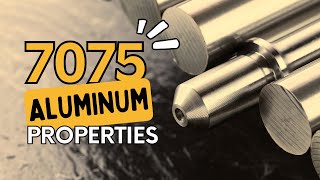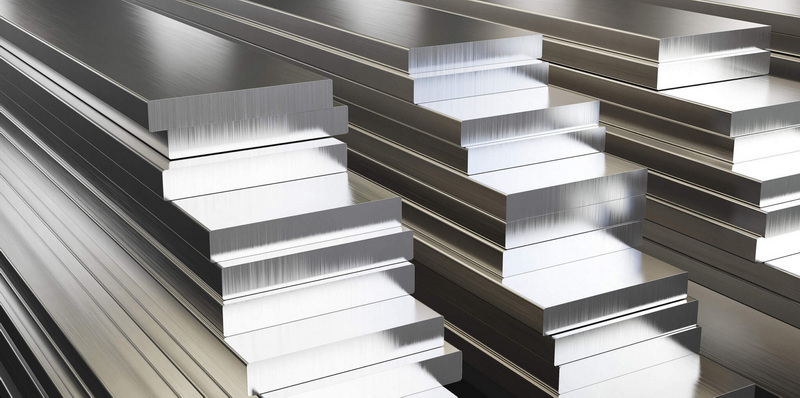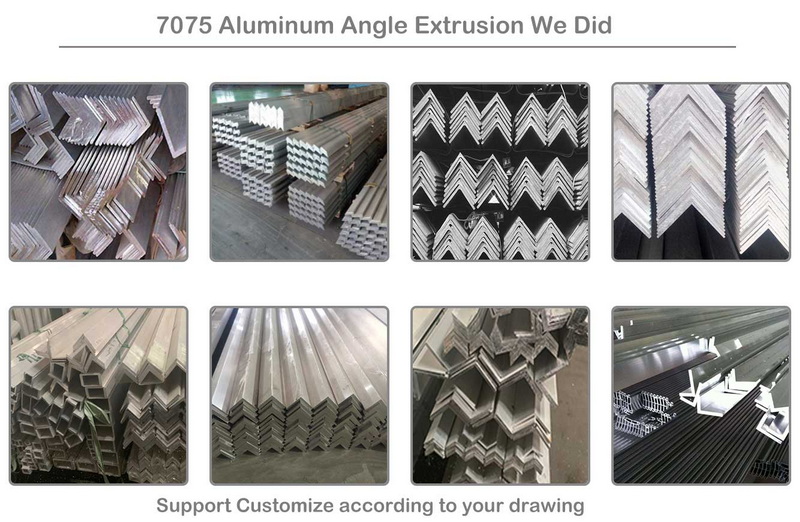Content Menu
● Understanding 7075 Aluminum
>> Key Properties of 7075 Aluminum
● Industries Utilizing 7075 Aluminum Extrusions
>> Aerospace Industry
>> Automotive Industry
>> Defense Industry
>> Sports Equipment
>> Marine Industry
>> Construction Industry
● Benefits of Using 7075 Aluminum Extrusions
>> Weight Savings
>> High Strength
>> Versatility
>> Cost-Effectiveness
>> Corrosion Resistance
● Conclusion
● Frequently Asked Questions
>> 1. What are the main advantages of using 7075 aluminum?
>> 2. In which industries is 7075 aluminum most commonly used?
>> 3. How does 7075 aluminum compare to other aluminum alloys?
>> 4. Is 7075 aluminum corrosion-resistant?
>> 5. What are the typical applications of 7075 aluminum in the aerospace industry?
7075 aluminum is a high-strength alloy that is widely recognized for its exceptional mechanical properties and versatility. It is primarily used in industries that require materials that can withstand high stress and extreme conditions. This article explores the various industries that commonly utilize 7075 aluminum extrusions, detailing its applications, benefits, and the reasons behind its popularity.

Understanding 7075 Aluminum
7075 aluminum is part of the 7000 series of aluminum alloys, which are primarily alloyed with zinc. This alloy is known for its high strength-to-weight ratio, making it an ideal choice for applications where weight savings are critical without compromising strength. The alloy typically contains about 5.6% to 6.1% zinc, along with smaller amounts of magnesium, copper, and other elements.
Key Properties of 7075 Aluminum
- High Strength: 7075 aluminum is one of the strongest aluminum alloys available, often compared to steel in terms of strength.
- Lightweight: Despite its strength, it is significantly lighter than steel, making it suitable for applications where weight is a concern.
- Corrosion Resistance: While not as corrosion-resistant as some other aluminum alloys, 7075 can still perform well in many environments, especially when treated with protective coatings.
- Good Machinability: This alloy can be easily machined, allowing for precise fabrication of complex shapes.
Industries Utilizing 7075 Aluminum Extrusions
Aerospace Industry
The aerospace industry is one of the largest consumers of 7075 aluminum extrusions. The need for lightweight yet strong materials is paramount in aircraft design and manufacturing. Components such as aircraft frames, wing structures, and landing gear often utilize 7075 aluminum due to its high strength and fatigue resistance. The aerospace sector demands materials that can endure extreme conditions, and 7075 aluminum meets these requirements effectively.
In addition to structural components, 7075 aluminum is also used in various aircraft fittings and fasteners, where its strength-to-weight ratio is crucial. The ability to reduce weight without sacrificing performance is a significant advantage in aviation, where every ounce counts.
Automotive Industry
In the automotive sector, 7075 aluminum is used in high-performance vehicles, particularly in racing and sports cars. The alloy is employed in parts such as chassis components, suspension systems, and engine components where weight reduction is critical for performance. The automotive industry values 7075 for its ability to withstand high stress while maintaining a lightweight profile.
Moreover, as the automotive industry shifts towards electric vehicles (EVs), the demand for lightweight materials like 7075 aluminum is expected to grow. Reducing the weight of EVs can enhance their range and efficiency, making 7075 aluminum an attractive option for manufacturers.
Defense Industry
The defense industry also heavily relies on 7075 aluminum extrusions for various applications, including military vehicles, aircraft, and weapon systems. The strength and durability of this alloy make it suitable for components that must endure harsh conditions and high-stress environments. Additionally, the lightweight nature of 7075 aluminum helps improve fuel efficiency in military vehicles.
7075 aluminum is often used in the construction of armored vehicles, where its strength is essential for protecting personnel and equipment. The alloy's ability to be formed into complex shapes allows for innovative designs that enhance the performance and safety of military applications.
Sports Equipment
7075 aluminum is commonly found in high-end sports equipment, including bicycles, golf clubs, and climbing gear. The strength-to-weight ratio of this alloy allows manufacturers to create lightweight yet durable products that can withstand the rigors of competitive sports. For example, bicycle frames made from 7075 aluminum provide excellent performance without adding unnecessary weight.
In addition to bicycles, 7075 aluminum is used in various outdoor equipment, such as tents and hiking poles, where durability and weight are critical factors. The ability to produce strong, lightweight components has made 7075 aluminum a favorite among athletes and outdoor enthusiasts.
Marine Industry
In the marine industry, 7075 aluminum is used for constructing boat hulls, masts, and other structural components. The alloy's resistance to corrosion, especially when anodized, makes it suitable for marine environments. Additionally, the lightweight nature of 7075 aluminum helps improve the speed and fuel efficiency of boats.
Marine applications often require materials that can withstand harsh saltwater conditions, and 7075 aluminum meets these demands effectively. Its strength allows for the construction of robust vessels that can handle rough seas while maintaining performance.

Construction Industry
The construction industry also benefits from the use of 7075 aluminum extrusions, particularly in applications requiring lightweight structural components. This alloy is used in scaffolding, window frames, and other architectural elements where strength and weight are critical factors. The ability to extrude 7075 aluminum into various shapes allows architects and builders to create innovative designs that are both functional and aesthetically pleasing.
In addition to structural applications, 7075 aluminum is also used in decorative elements and fixtures, providing a modern look while ensuring durability. The versatility of this alloy makes it a valuable material in contemporary construction projects.
Benefits of Using 7075 Aluminum Extrusions
Weight Savings
One of the primary advantages of using 7075 aluminum extrusions is the significant weight savings compared to traditional materials like steel. This is particularly important in industries such as aerospace and automotive, where reducing weight can lead to improved fuel efficiency and performance. The lightweight nature of 7075 aluminum allows for more efficient designs and better overall performance in various applications.
High Strength
7075 aluminum's high strength makes it suitable for applications that require materials to withstand heavy loads and stresses. This property is crucial in industries like aerospace and defense, where safety and reliability are paramount. The ability to use a lighter material without compromising strength is a significant advantage in these sectors.
Versatility
The versatility of 7075 aluminum allows it to be used in a wide range of applications across various industries. Its ability to be extruded into complex shapes and profiles makes it a preferred choice for manufacturers. This adaptability enables engineers and designers to create innovative solutions tailored to specific needs.
Cost-Effectiveness
While 7075 aluminum may be more expensive than some other materials, its durability and performance can lead to cost savings in the long run. The reduced need for maintenance and replacement, along with improved efficiency, can offset the initial investment. Additionally, the long lifespan of products made from 7075 aluminum contributes to its overall cost-effectiveness.
Corrosion Resistance
Although not as corrosion-resistant as some other aluminum alloys, 7075 can still perform well in many environments, especially when treated with protective coatings. This makes it suitable for applications in marine and outdoor environments, where exposure to moisture and salt can lead to corrosion in less durable materials.
Conclusion
7075 aluminum extrusions are a vital material in various industries, including aerospace, automotive, defense, sports, marine, and construction. Its high strength, lightweight nature, and versatility make it an ideal choice for applications that demand performance and reliability. As technology advances and industries continue to seek innovative solutions, the use of 7075 aluminum is likely to expand further, solidifying its position as a key material in modern manufacturing.

Frequently Asked Questions
1. What are the main advantages of using 7075 aluminum?
The main advantages include high strength, lightweight, good machinability, and versatility in applications.
2. In which industries is 7075 aluminum most commonly used?
It is commonly used in aerospace, automotive, defense, sports equipment, marine, and construction industries.
3. How does 7075 aluminum compare to other aluminum alloys?
7075 aluminum is one of the strongest aluminum alloys, often compared to steel, making it suitable for high-stress applications.
4. Is 7075 aluminum corrosion-resistant?
While not as corrosion-resistant as some other alloys, 7075 can perform well in many environments, especially when treated with protective coatings.
5. What are the typical applications of 7075 aluminum in the aerospace industry?
Typical applications include aircraft frames, wing structures, and landing gear components.






















